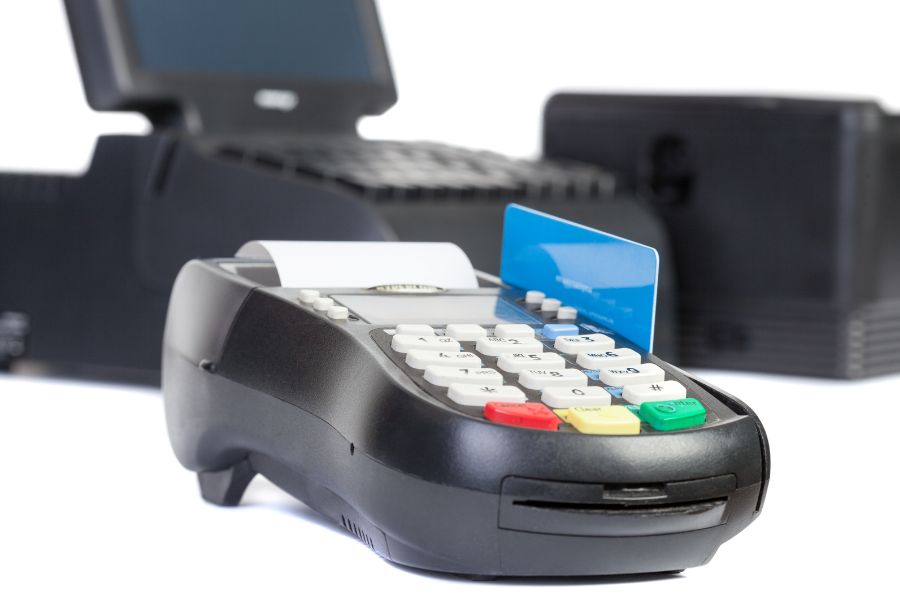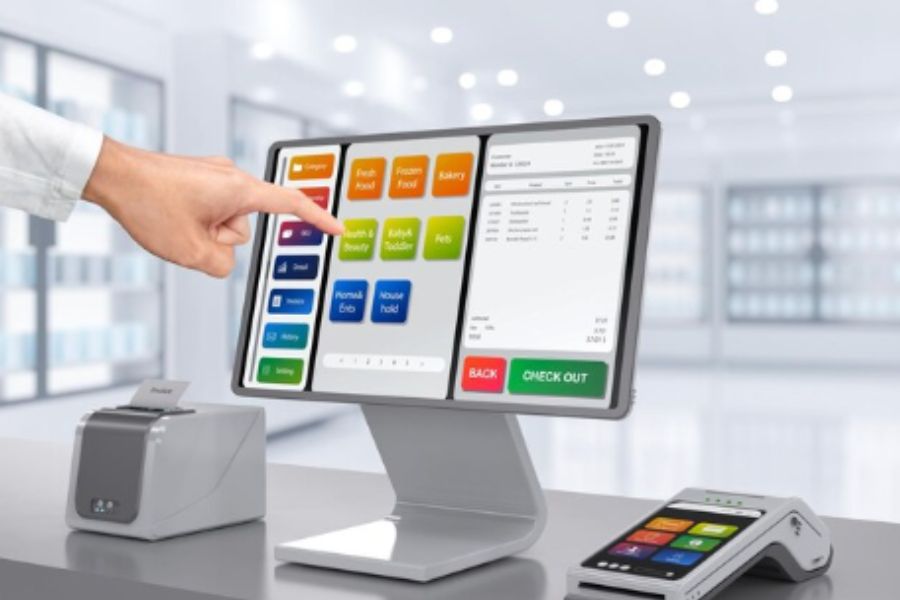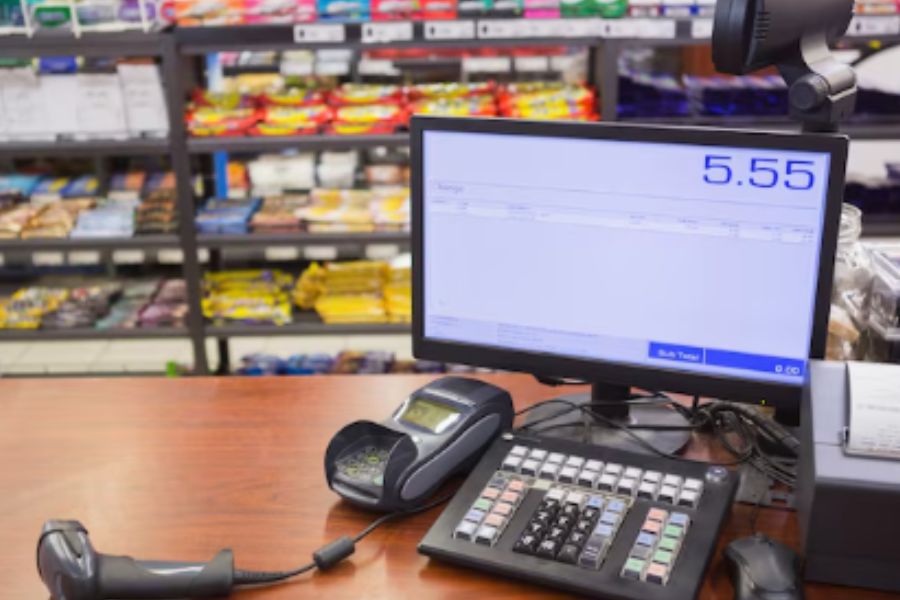A wholesale business means handling bulk orders, tracking inventory, and dealing with countless suppliers. Yet, things can quickly get messy without the right tools. That’s why having a solid POS for wholesale can be a real lifesaver.
Think about it. You’ve got mountains of inventory to manage, huge orders flying in, and prices changing depending on who’s buying. Regular retail systems simply can’t handle this complexity. But a wholesale POS system is built exactly for these challenges. It simplifies your workday, keeps your customers happy, and helps your business grow smoothly. Let’s break down how it works and why it matters.
Highlights:
- A POS for wholesale manages high-volume transactions, bulk pricing, customer tiers, and multi-location inventory under one system tailored for B2B operations.
- The POS system improves order accuracy, shortens processing time, and gives wholesalers better control over pricing, stock levels, and customer relationships.
What is a Wholesale POS?
A wholesale POS (Point of Sale) is a system created just for wholesale businesses. Unlike a standard retail POS, it’s built for handling bulk transactions, managing large inventories, and dealing with complicated price setups.
Wholesale POS software lets you easily keep tabs on your stock across multiple warehouses, suppliers, and clients. It also gives you the tools to set special prices for different buyers, manage big orders efficiently, and handle billing and invoicing quickly.
Key Differences Between Wholesale and Retail POS
Retail and wholesale businesses might look similar on the surface, but their point of sale systems couldn’t be more different. Retail POS focuses on quick, small transactions, while wholesale POS deals with large, complicated orders.
Let’s check out the main differences clearly:
| Criteria | Wholesale POS | Retail POS |
| Customization & Flexibility | Custom bulk orders, tiered pricing, special contracts. | Simple promotions, loyalty programs. |
| B2B Features | Supplier management, dropshipping, advanced ordering. | Not needed. |
| Inventory Management | Multi-location, bulk tracking, serial number tracking. | Single items, simpler inventory tracking. |
| Pricing and Discounts | Complex price structures, volume discounts. | Fixed pricing, simple sales promotions. |
| Payments | Invoicing, credit terms, bulk payments. | Quick payments, cards, cash. |
| Reporting & Analytics | Deep reports on orders, suppliers, accounts. | Customer habits, single transaction data. |
| User Interface | Detailed for managing big orders and inventories. | Simple, fast for retail environment. |
Wholesale businesses often juggle both B2B and B2C customers. Your POS for wholesale must handle complicated supplier setups, bulk sales, and special pricing agreements. Retail systems aren’t cut out for that job. They’re great for fast checkouts, but can’t keep up with large-scale wholesale needs.
So, if your business deals with large inventories, bulk orders, and different pricing for different customers, a wholesale POS is exactly what you need. It’s your best bet to keep everything running smoothly.
How a Wholesale POS Enhances Business Operations
Wholesale businesses have a lot on their plates. Keeping track of stock, managing multiple warehouses, and coordinating suppliers can quickly get complicated.
Let’s see exactly how a POS for wholesale steps in to lighten the load.
Advanced Inventory Management
Staying on top of inventory is tricky when you’re selling by the pallet instead of individual items. A wholesale POS takes the guesswork out of inventory management. It gives you real-time updates, so you know exactly what’s available, what’s running low, and when to reorder. Plus, you can easily track products across different locations or warehouses.
For example, serial numbers or batch tracking can make recalls or quality checks easy. A good wholesale POS system gives you this level of detail without causing headaches.
Warehouse Optimization
Warehouses can be chaotic if not managed well. But a wholesale POS makes organizing your warehouse simpler. You get features like automated picking and packing lists to make order fulfillment quicker and easier. It also gives you bin location tools, so you always know where things are.
Real-time updates on stock movement help avoid costly mistakes. You won’t waste hours hunting down misplaced inventory, which saves you time and money.
Supplier Management Tools
Managing suppliers is key in wholesale businesses. Your POS system should simplify this task, too. It can automate purchase orders based on sales trends, ensuring you never run low on important items.
You can even track supplier performance, including who delivers on time, who provides the best prices, and who’s reliable. This makes decisions quicker and smarter, building stronger partnerships and smoother operations.
B2B-Specific Features
Wholesale transactions aren’t simple. Buyers have specific needs like bulk ordering, custom pricing, and invoicing terms. A dedicated wholesale POS handles these with ease.
You get features for dropshipping, automated invoicing, credit management, and even special ordering portals for B2B customers. This cuts down manual work, reduces mistakes, and improves customer satisfaction.
Choosing the Right Wholesale POS for Your Business
Picking a wholesale POS isn’t a quick decision. You want one that matches your needs and grows with your business. Here are some key things to think about.
Business Size & Scalability
Different businesses have different needs. Small wholesalers might need a basic POS with core features like inventory management and simple reporting. Medium-sized businesses might require advanced analytics and better integrations with accounting or ERP systems.
Large wholesalers need systems that can handle massive inventories, complex pricing, and multiple warehouse operations smoothly. Always pick a wholesale POS that can grow with you, so you won’t outgrow it in a few years.
Industry-Specific Needs
Your wholesale POS should match your industry.
- If you’re in food and beverage or run a grocery & supermarket, you need expiration date tracking.
- Apparel businesses could need detailed size and style management.
- Electronics wholesalers typically require serial number tracking for warranty purposes.
Make sure the system you choose has features designed specifically for your industry, so you’re not stuck improvising solutions later.
Budget & Cost Considerations
Cost is always a primary factor. Wholesale POS systems range widely in price depending on features and business size. Smaller businesses usually benefit from affordable cloud-based systems. These often have low upfront costs and predictable monthly fees.
Larger businesses might invest in more comprehensive on-premise solutions. These systems can offer more control but require a larger upfront investment. Consider hidden costs too, like payment processing fees or add-on features. Pick a solution that fits comfortably in your budget without sacrificing necessary capabilities.
Choosing the right POS for wholesale is about finding the perfect balance between features, scalability, and cost. Do your research, understand your needs, and the right system will become a trusted partner in your business’s growth.
Why ConnectPOS is the Ideal POS for Wholesale Businesses
Finding the right POS for wholesale can make your operations easier, faster, and more profitable. ConnectPOS is built precisely for this. It’s cloud-based, explicitly designed for wholesale needs, and handles the most demanding B2B tasks effortlessly.
If you’re dealing with significant inventory volumes, numerous suppliers, or massive bulk orders, ConnectPOS simplifies everything.
Here are some key reasons why ConnectPOS is perfect for wholesale:
- Multi-Warehouse Inventory Management: See and manage stock in real-time across multiple warehouses or store locations.
- Flexible Pricing & Discounts: Create tiered pricing, volume discounts, and custom price lists tailored to each client.
- Seamless B2B Ordering System: Handles bulk orders, credit payments, and easy invoicing.
- Automated Purchase Order (PO) System: Automatically create POs based on stock levels and sales trends.
- Dropshipping & 3PL Integration: Directly connect with suppliers and logistic providers, speeding up order fulfillment.
- Omnichannel Selling: Sell through both online and offline channels using just one system.
- Custom Client Portals: Allow your buyers to easily place and manage their orders themselves.
- Comprehensive Reporting & Analytics: Get instant insights into your sales, stock, and supplier performance.
- Flexible Payment Methods: Accept various payment types including invoices, bank transfers, and credit terms.
- Seamless Integration with Major Platforms: Easily connect with platforms like Magento POS, Shopify POS, and BigCommerce POS.
Plus, if your wholesale operation requires specialized features beyond the standard offerings, you can explore a custom POS approach to address unique business requirements. Overall, ConnectPOS helps wholesale businesses cut down on manual tasks, boost order accuracy, and keep customers happy. That means more revenue and smoother operations.
FAQs: POS for Wholesale Operations
1. How does a wholesale POS system streamline inventory management?
A wholesale POS gives you real-time inventory updates and centralizes data from every warehouse or location. This cuts down on manual entry, prevents overselling, and keeps your stock records accurate all the time.
2. How can integrating a POS system with eCommerce improve my business?
Integrating your POS with your online store means sales, inventory, and customer info stay synced across every platform. You’ll save time, offer better customer experiences, and make smarter decisions based on unified data.
3. What challenges might I face when implementing a wholesale POS system?
Common challenges include syncing data across channels, training your staff, and initial setup costs. Yet, a well-chosen POS system with reliable support can handle these issues by automating tasks, minimizing mistakes, and guiding your team step by step.
Final Thoughts
Managing a wholesale business comes with unique challenges like complicated inventories, handling multiple suppliers, and managing large bulk orders. The right POS for wholesale system solves these issues by simplifying daily operations, automating tasks, and giving you clear, real-time insights into your business.
A strong wholesale POS like ConnectPOS brings together advanced inventory control, warehouse optimization, supplier management tools, and dedicated B2B functions. You also get the flexibility to scale as you grow, customized features for your industry, and options that fit your budget.
With ConnectPOS, you spend less time worrying about manual tasks and more time building relationships with customers and suppliers. Your operations become smoother, your orders more accurate, and your customers happier.
If you’re ready to simplify your wholesale operations and grow your business with confidence, reach out to us today and see ConnectPOS in action.



